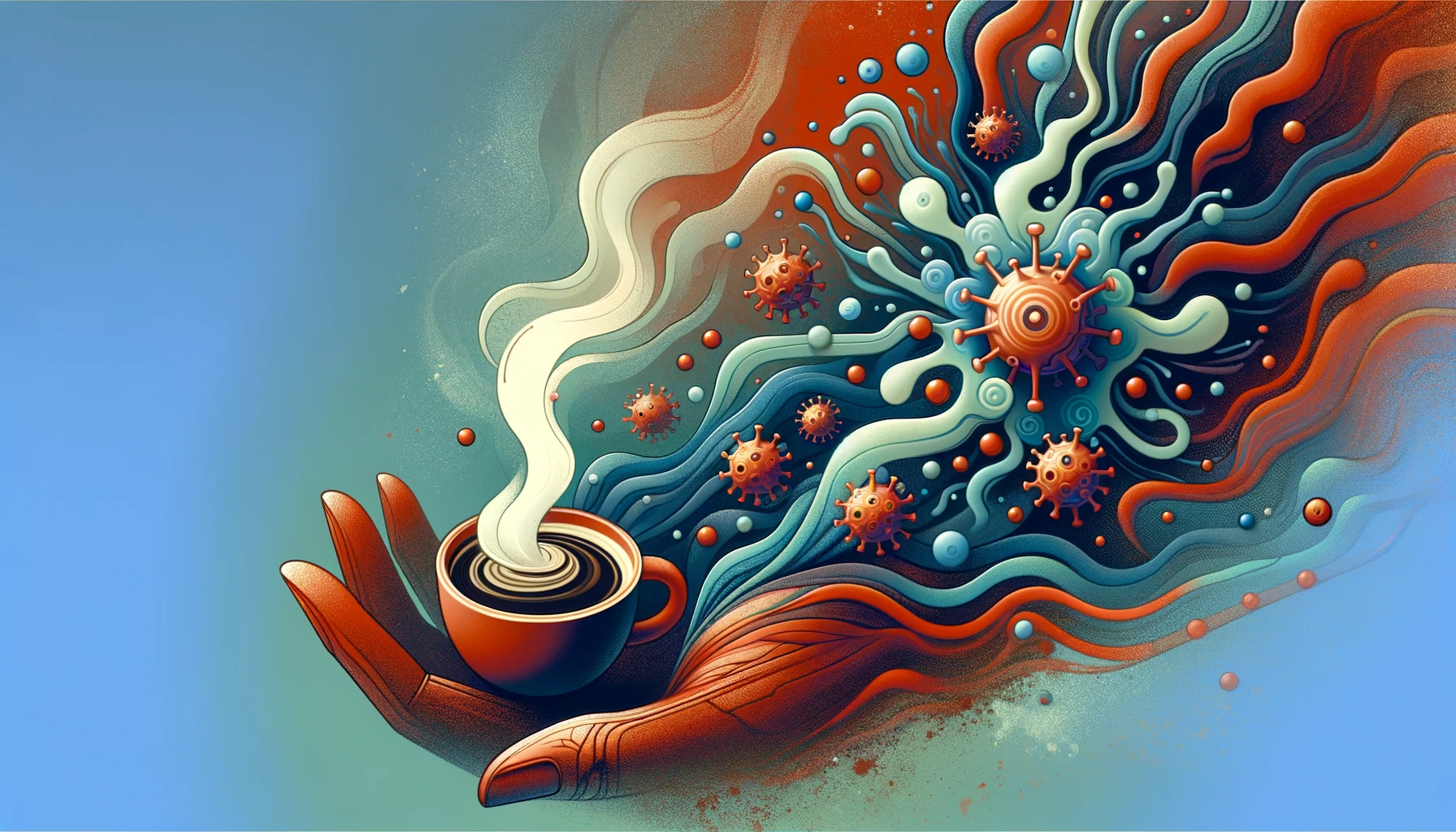Several variants of SARS-CoV-2 have emerged throughout the coronavirus disease 2019 (COVID-19) pandemic. Further, the protection conferred by vaccines wanes over time, prompting the introduction of vaccine boosters. Besides, diet can influence SARS-CoV-2 infection efficiency. Recent reports suggest that a polyphenol-rich diet and physical activity could trigger an active immune response and reduce the risk of severe disease.
Coffee is one of the most consumed beverages and contains polyphenols, such as caffeic acid and chlorogenic acid (CGA), and antioxidants like trigonelline, melanoidins, and cafestol. One study revealed that coffee consumption (at least one cup per day) was associated with a 10% lower COVID-19 risk among the United Kingdom (UK) Biobank participants. Nevertheless, the underlying mechanisms remain unclear.
 Study: Coffee as a dietary strategy to prevent SARS-CoV-2 infection
Study: Coffee as a dietary strategy to prevent SARS-CoV-2 infection
About the study
In the present study, researchers examined the effectiveness of coffee against SARS-CoV-2. They used a SARS-CoV-2 pseudovirus assay to assess the effects of coffee on viral entry in a human embryonic kidney cell line (293T) expressing angiotensin-converting enzyme 2 (ACE2). Ground coffee (6 mg/ml) showed a dose-dependent reduction in viral entry. Next, they tested the effects of several commercial instant coffee products.
Instant coffee products (1 mg/ml) consistently inhibited the entry of wild-type SARS-CoV-2 and variants (Alpha, Delta, and Omicron). Next, the team evaluated how additives in coffee, such as cream, low fat, milk, and sugar, affect its potency. This showed that additives had no impact on the inhibitory effects of coffee. The researchers performed an enzyme-linked immunosorbent assay (ELISA) and observed that ground and instant coffee interrupted spike-ACE2 interactions.
In addition, the team observed that ground and instant coffee inhibited the activity of transmembrane protease serine 2 (TMPRSS2). Next, they tested whether ACE2 and TMPRSS2 expression could be regulated. To this end, hepatocellular carcinoma (HCC) HepG2 cells and Huh7 cells, which express high levels of ACE2 and TMPRSS2, respectively, were treated with varying concentrations of coffee. This significantly reduced ACE2 and TMPRSS2 transcript and protein levels.
Besides, the activity of cathepsin L (CTSL), which facilitates SARS-CoV-2 entry, was also affected upon coffee treatment. Next, ultra-high-performance liquid chromatography (UHPLC) coupled with high-resolution mass spectrometry (HRMS) was performed to identify compounds in coffee responsible for observed effects. This analysis revealed seven peaks at 274 nm; these fractions were collected and evaluated separately.
The sixth (F6) and seventh (F7) fractions exhibited potent inhibitory effects against SARS-CoV-2 entry. CGA and caffeine were detected in F6, whereas luteolin, methyl ferulic acid, isocholorogenic acid A (isoCGA-A), isoCGA-B, and isoCGA-C were present in F7. Next, the inhibitory effect of a mixture containing the five F7 compounds was only half that observed with F7, suggesting that some undetected compounds in the F7 fraction contributed to inhibition.
Additionally, the compounds detected in F6 and F7 were separately tested. IsoCGAs, CGA, and caffeine inhibited the entry of wild-type SARS-CoV-2, and isoCGA-A was the most potent compound. Luteolin and methyl ferulic acid lacked inhibitory effects. Furthermore, isoCGAs, especially isoCGA-A, effectively inhibited the entry of the Alpha, Delta, and Omicron variants. Further analyses indicated that isoCGAs and CGA can inhibit the interactions between ACE2 and viral spike.
IsoCGAs were the top candidates in docking analyses based on binding energy scores, followed by CGA and caffeine. Next, the effects of isoCGAs, CGA, and caffeine on TMPRSS2 activity were evaluated. Consistently, isoCGAs achieved better inhibition against TMPRSS2 than CGA or caffeine. Furthermore, decaffeinated coffee was found to reduce spike-ACE2 interactions and TMPRSS2 activity.
Finally, 64 healthy Taiwanese individuals aged 21-40 were randomized to consume regular coffee (high- or low-dose), decaffeinated coffee (high- or low-dose), or water (control) for two days. Sera were collected before and after the intervention. Samples from most individuals in the regular coffee groups inhibited wild-type SARS-CoV-2 and the Omicron variant. Likewise, sera from decaffeinated coffee consumers, especially the high-dose group, also inhibited SARS-CoV-2.
Conclusions
The findings suggest that coffee can limit SARS-CoV-2 infection by inhibiting spike-ACE2 interactions, TMPRSS2, and CTSL. Coffee also reduced protein levels of ACE2 and TMPRSS2. Bioactive compounds in coffee, such as CGA, isoCGAs, and caffeine, showed inhibitory effects. The human trial showed that sera from regular and decaffeinated coffee consumers can suppress SARS-CoV-2, including the Omicron variant. Overall, the authors suggest that coffee intake could be a potential dietary strategy to prevent infection in the post-COVID era.